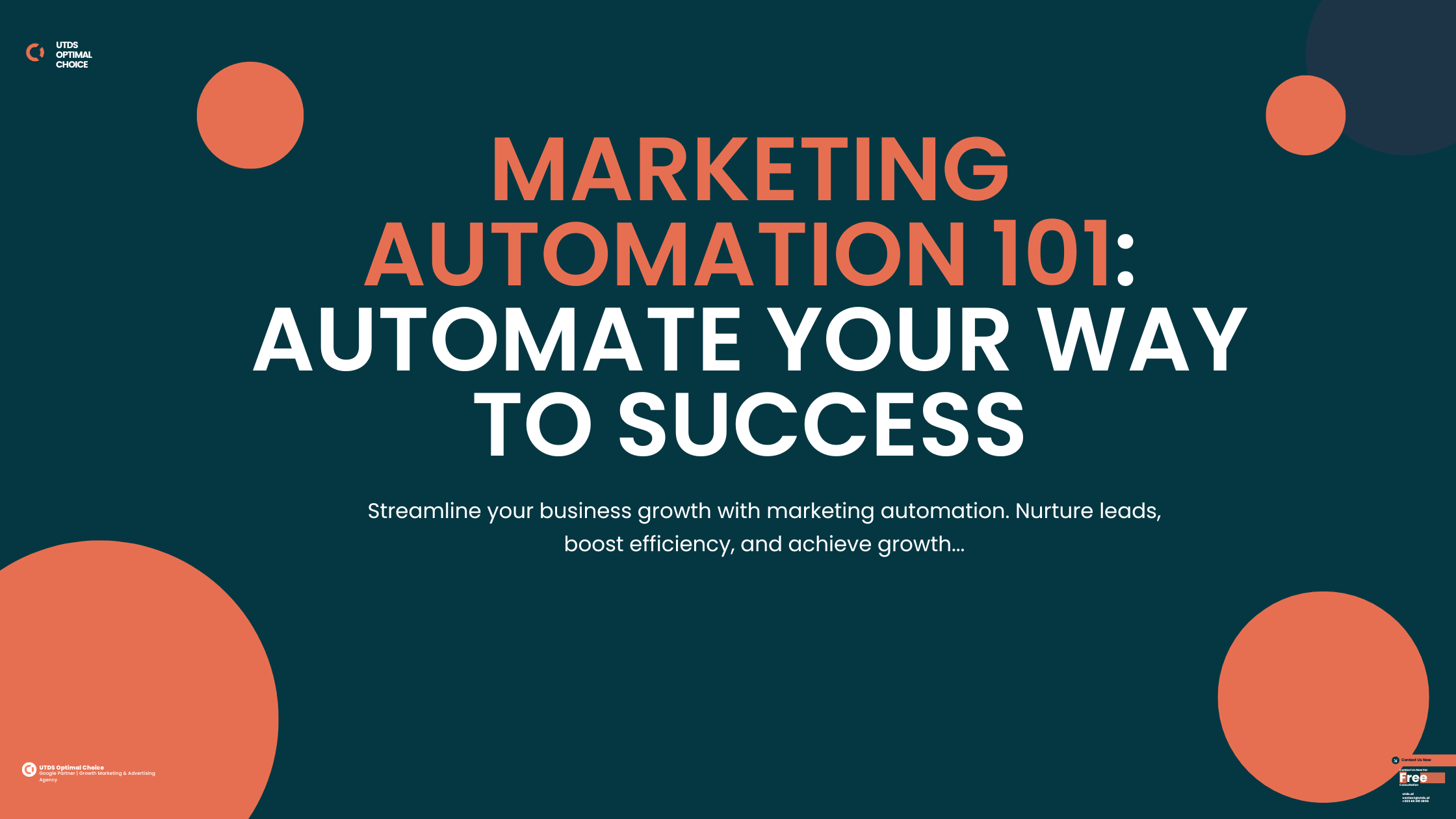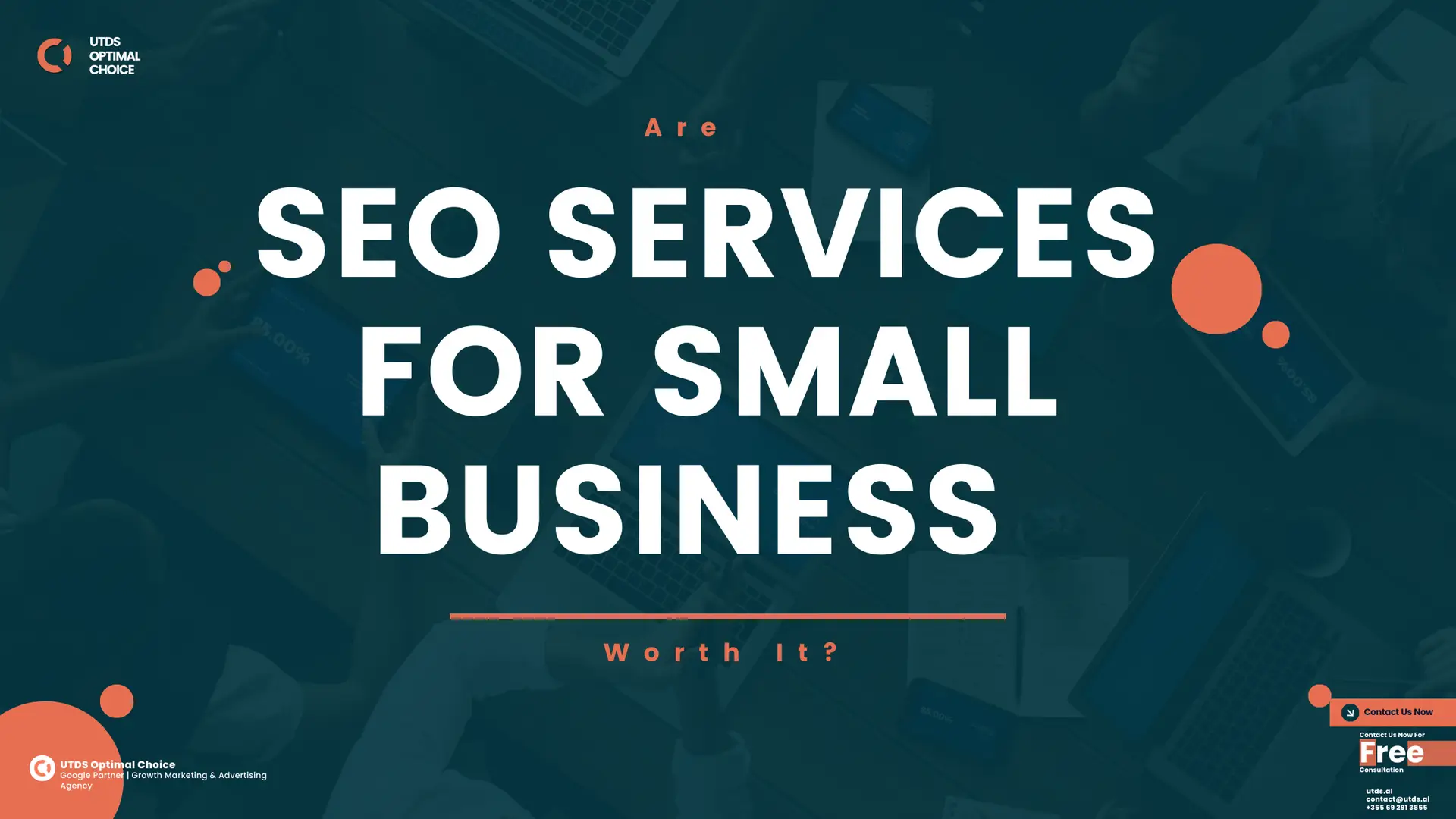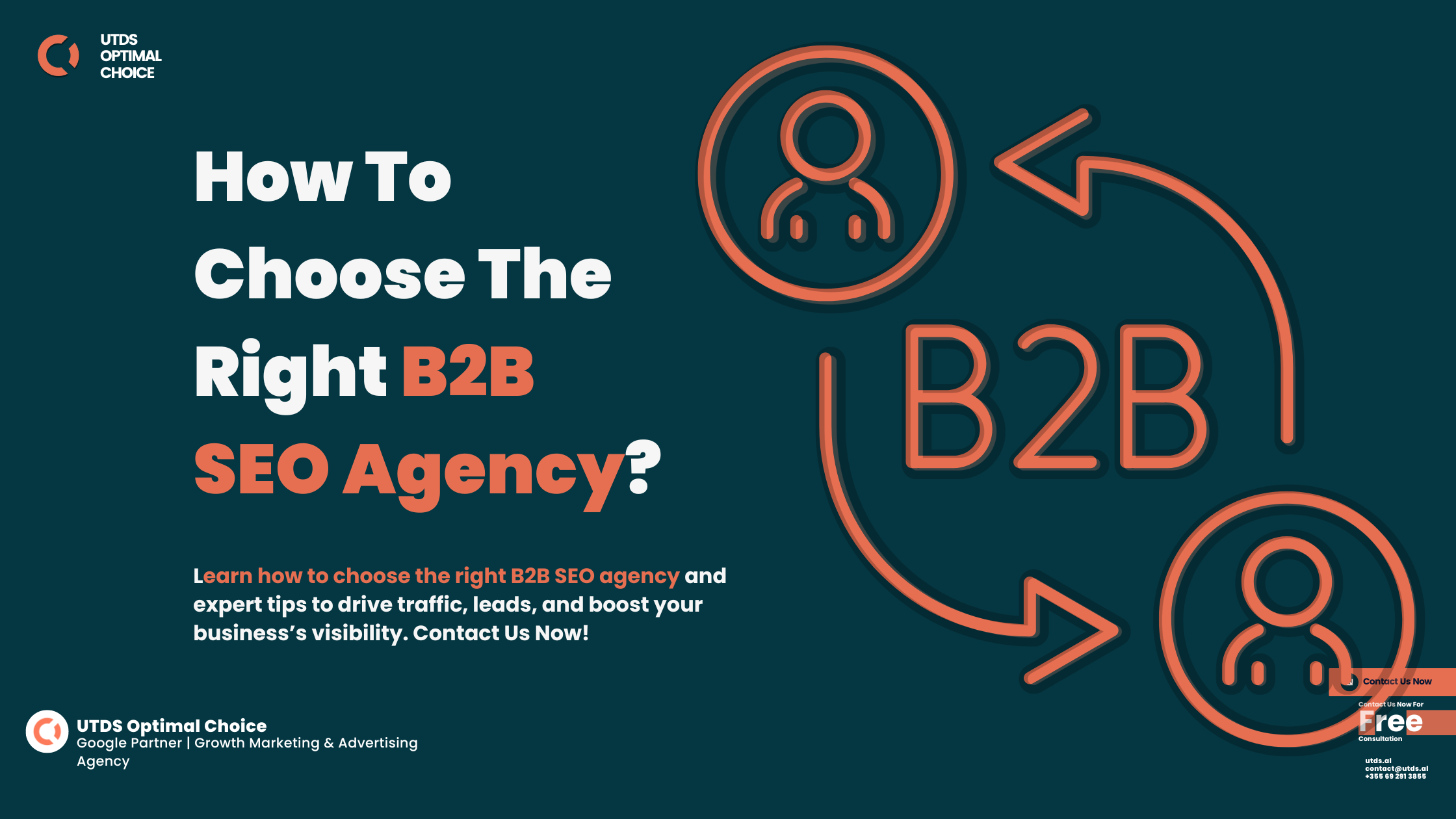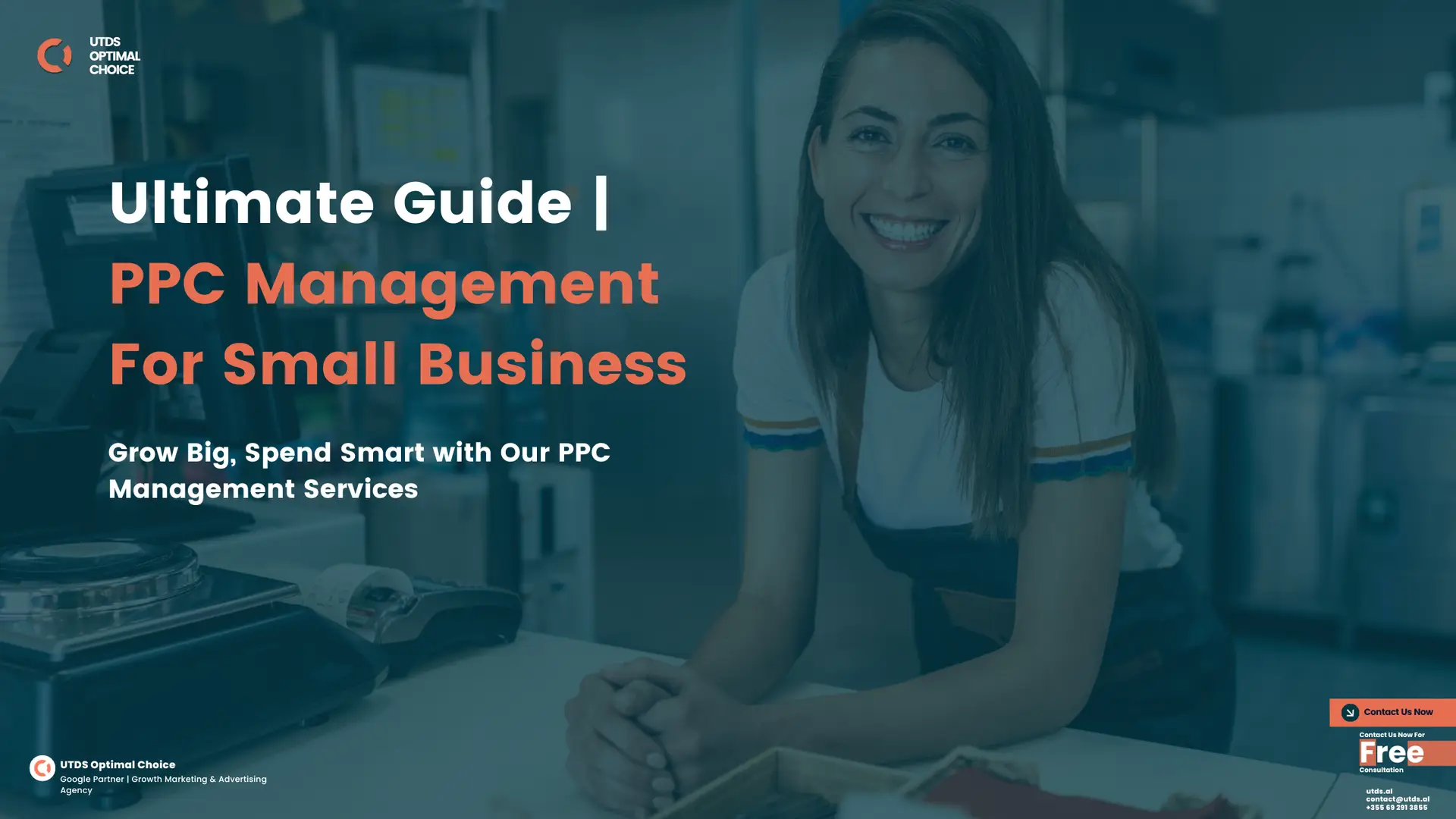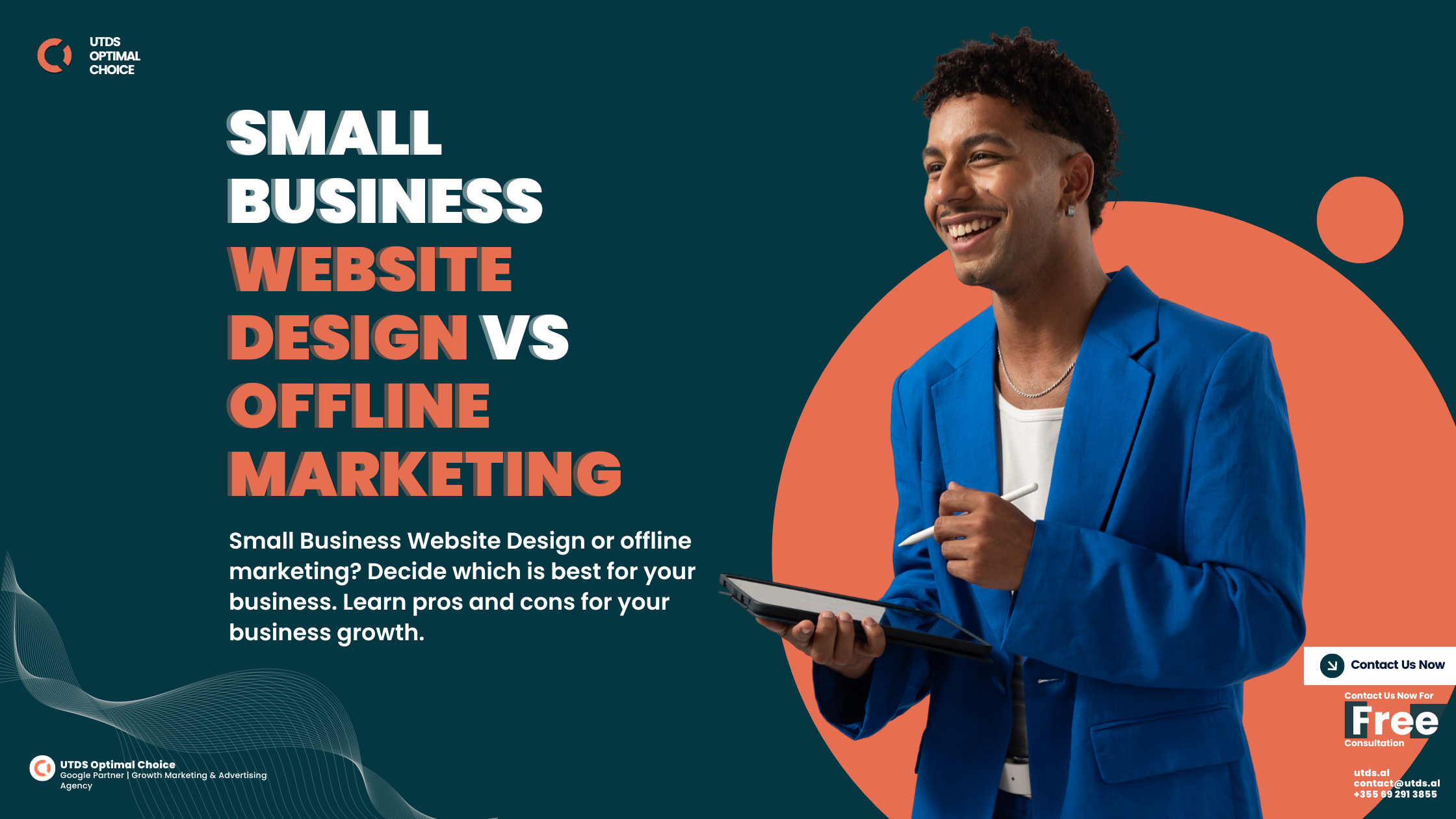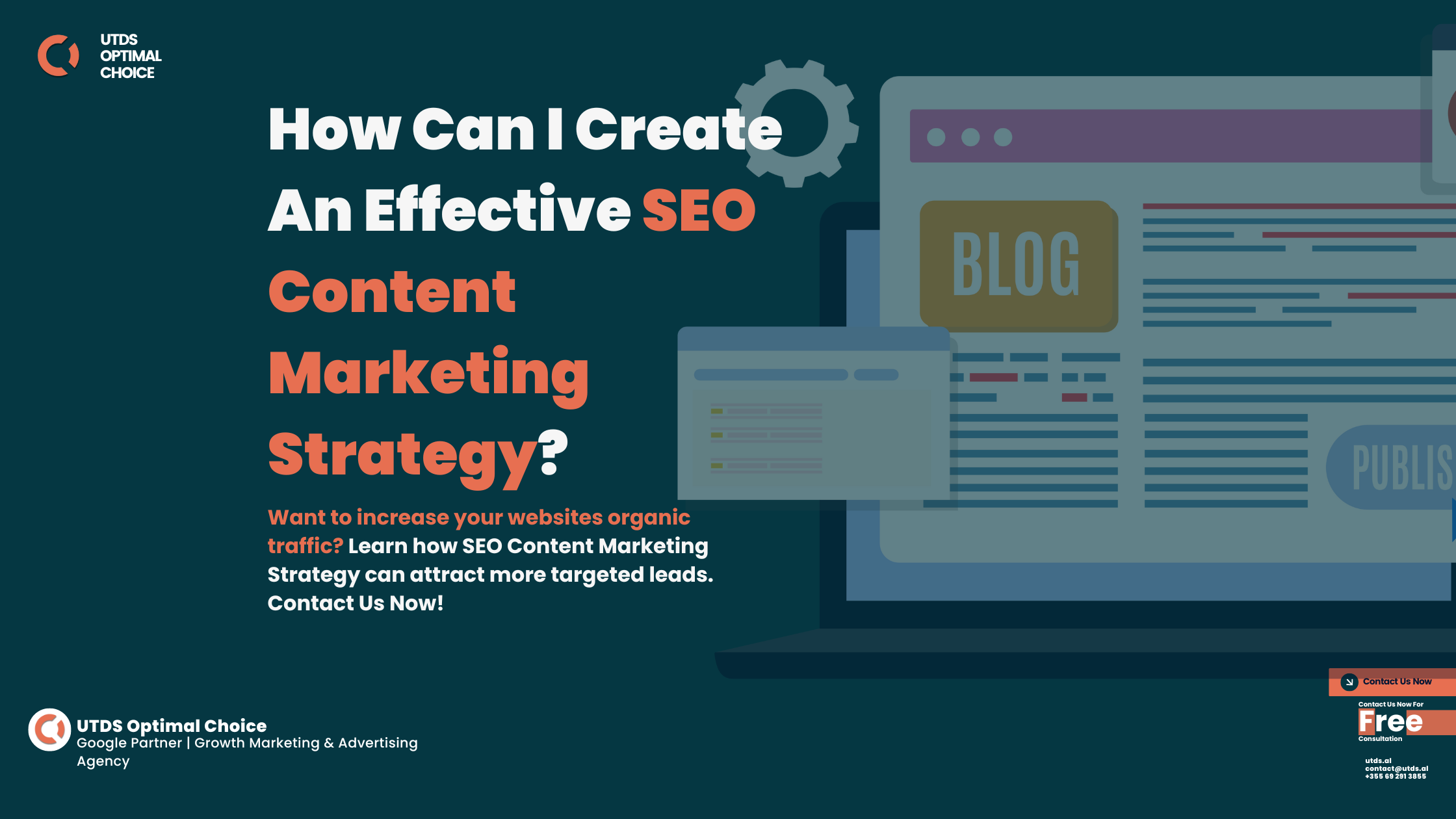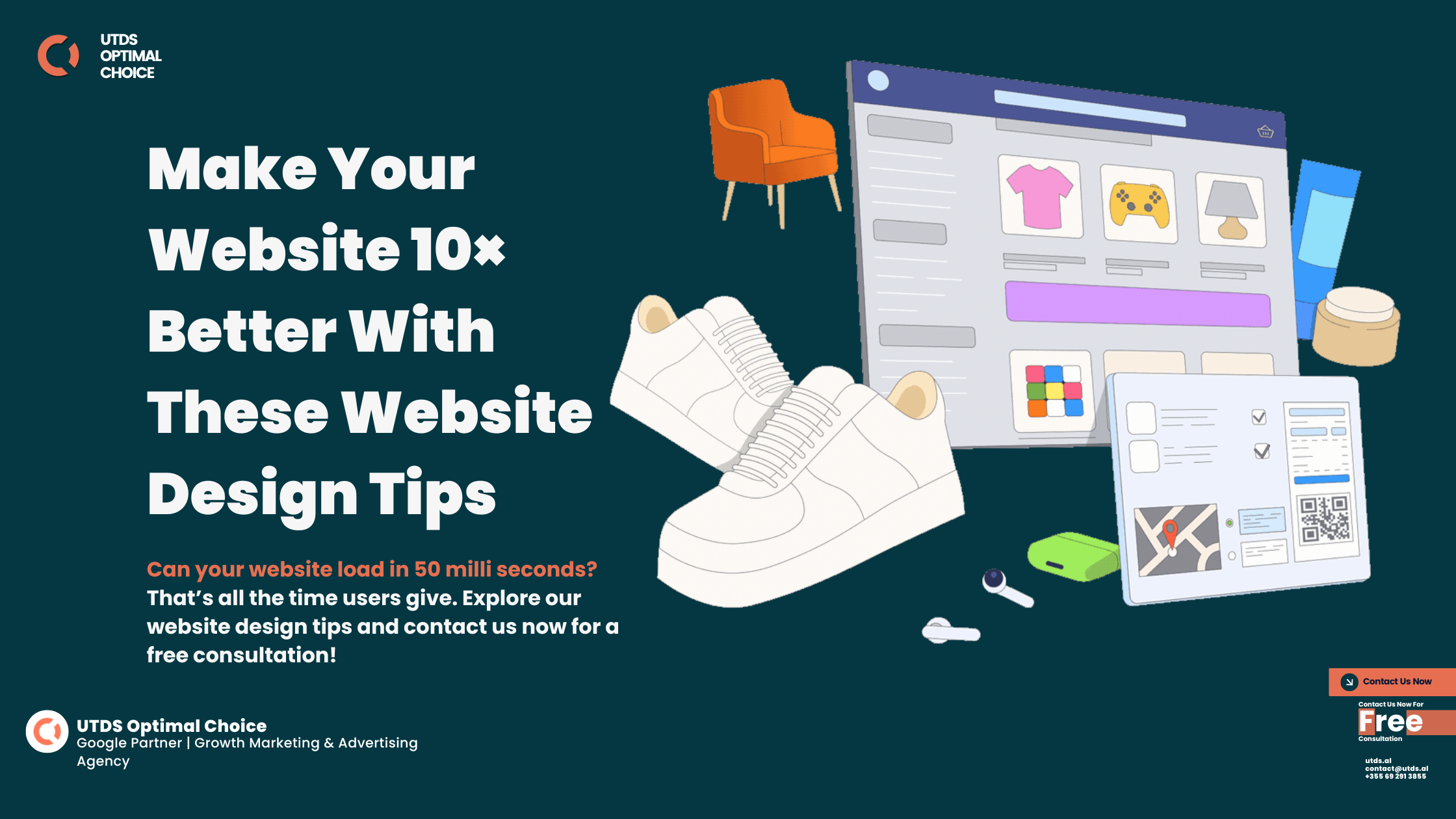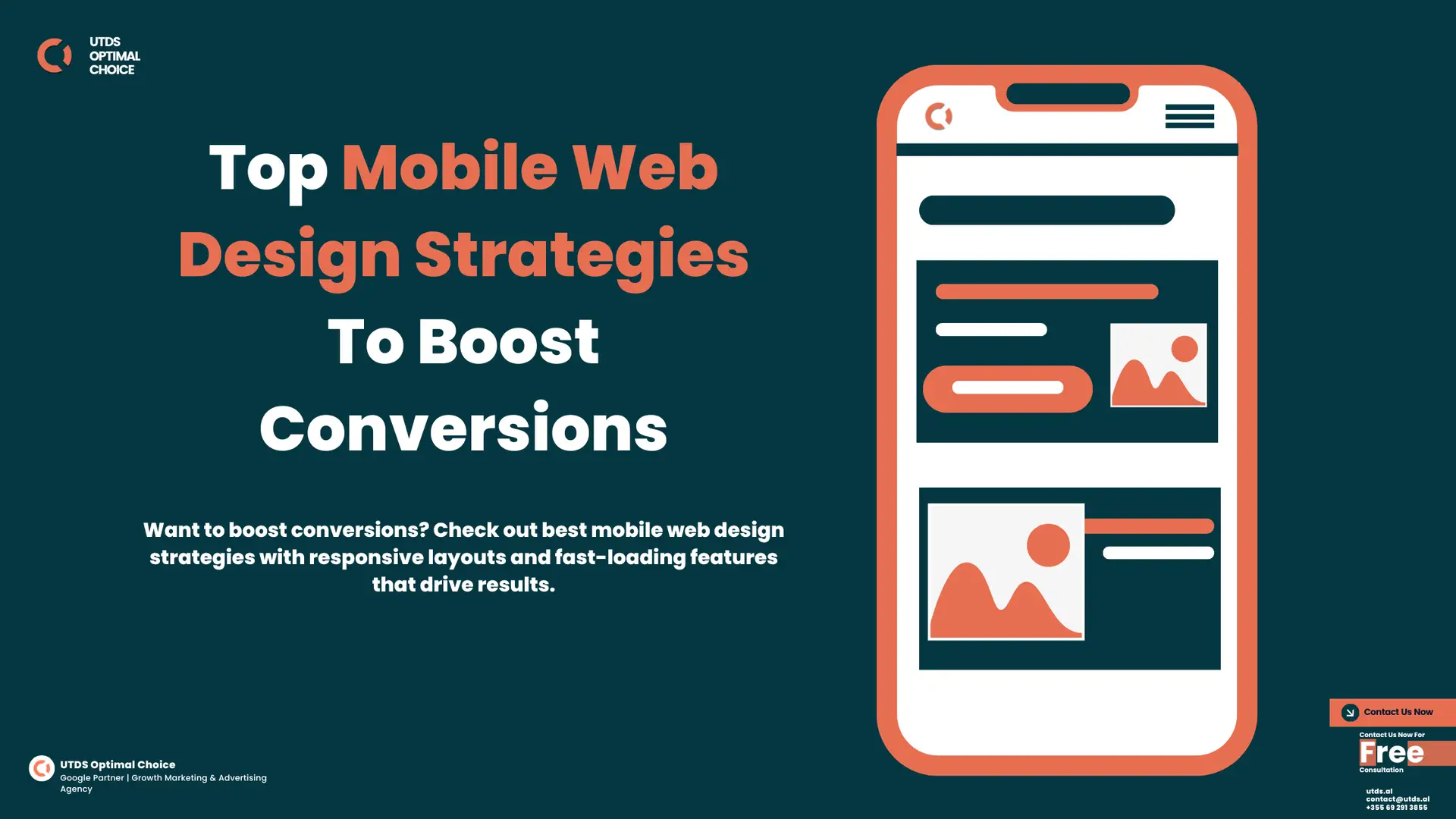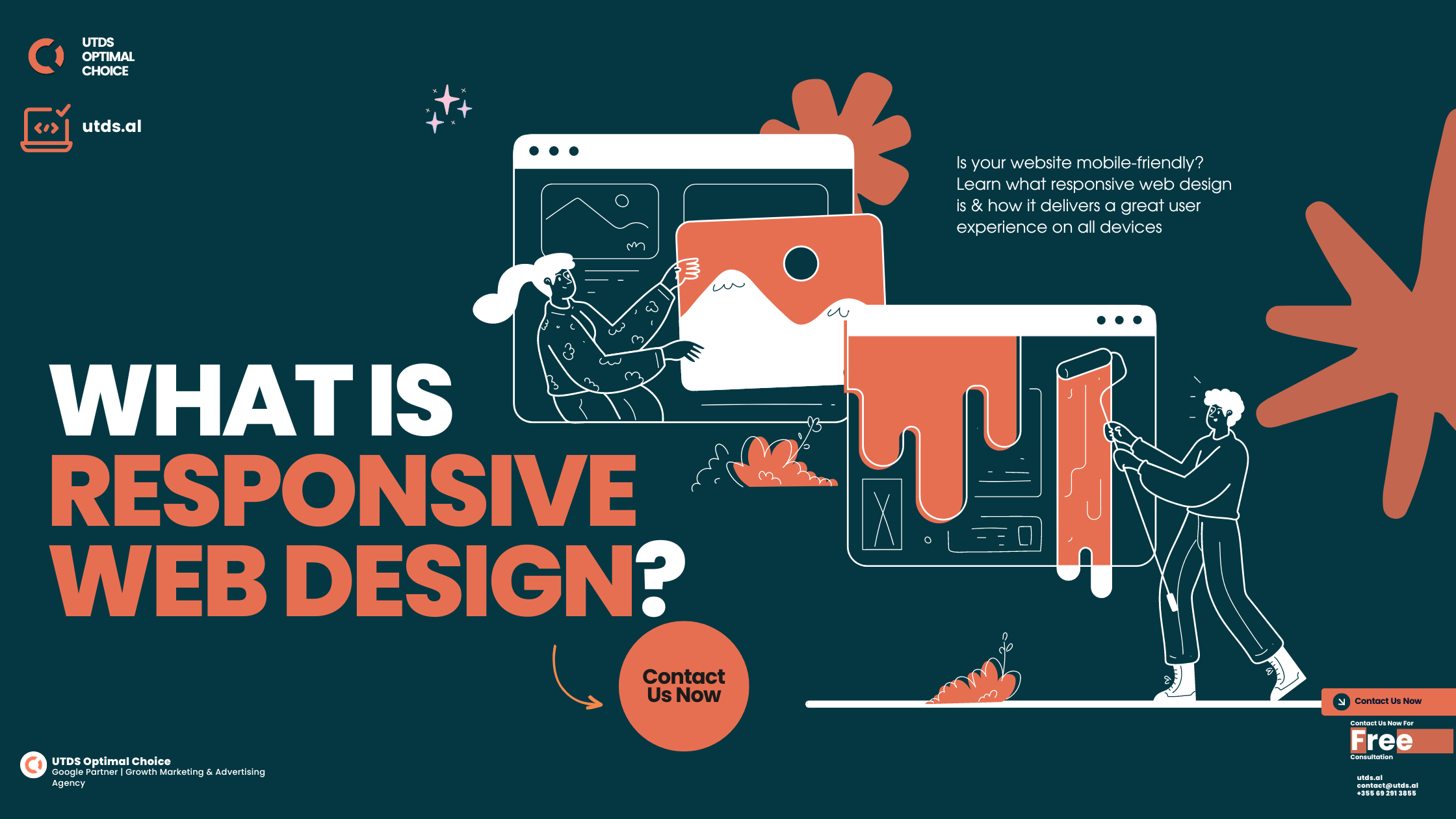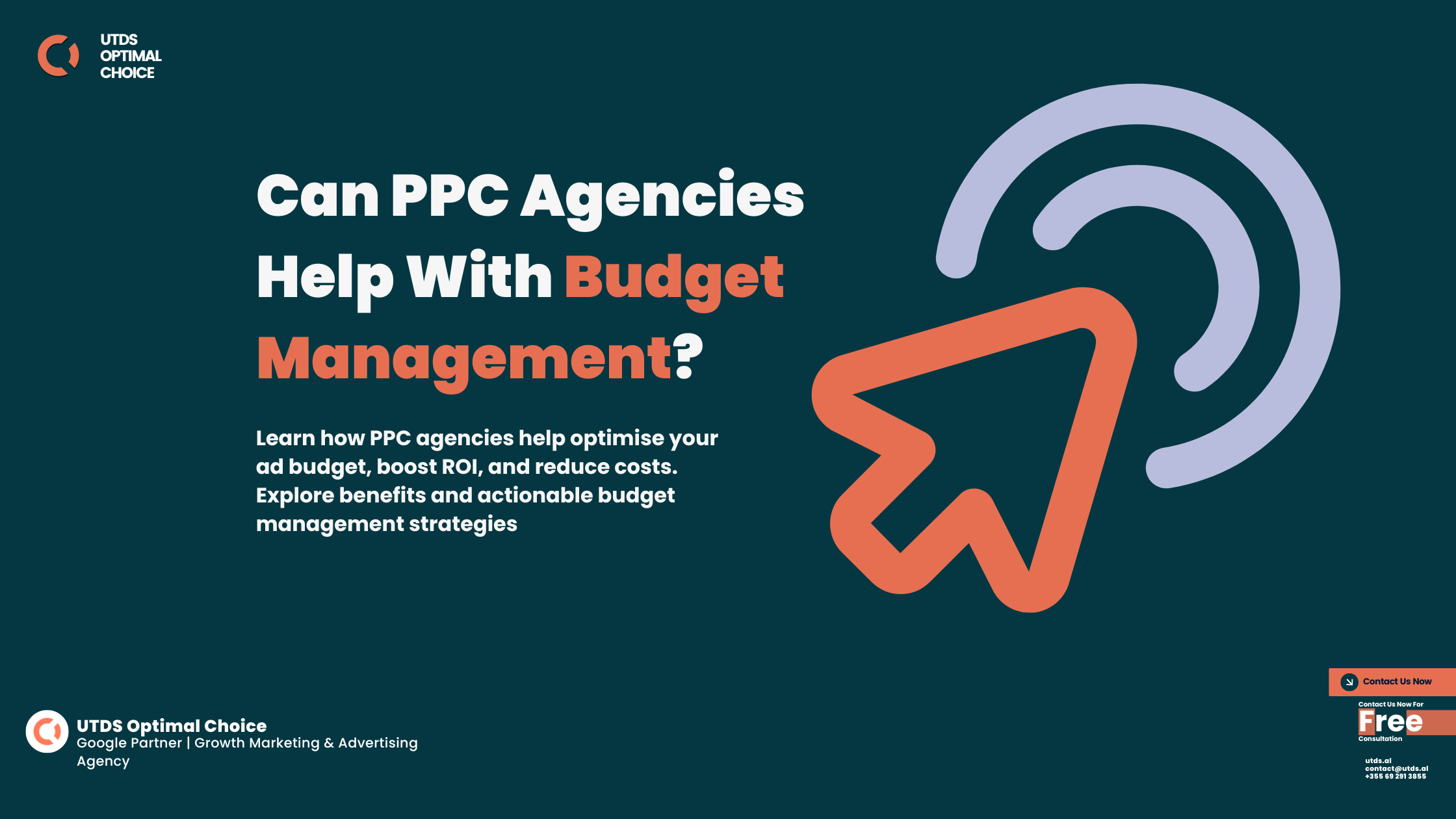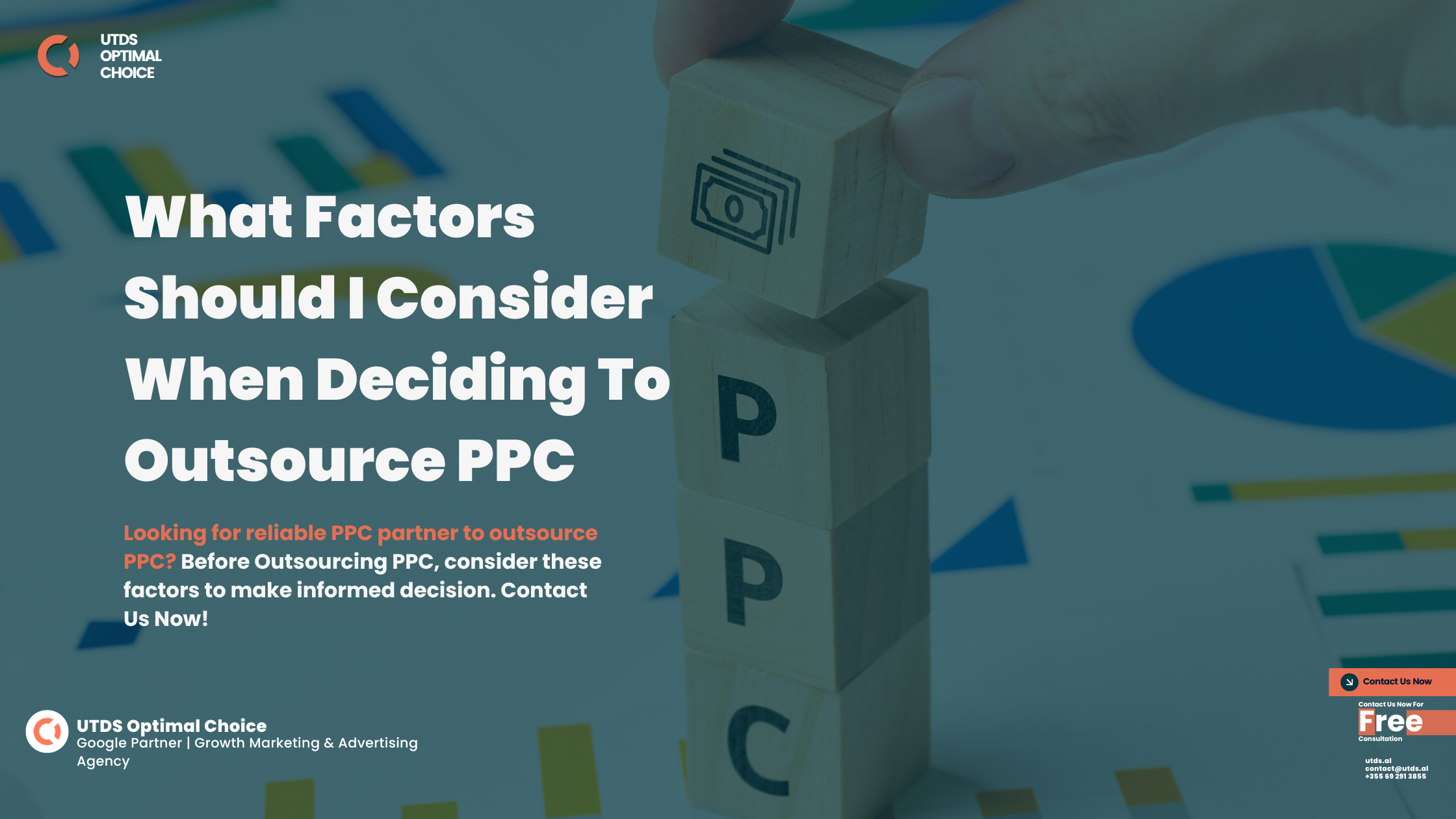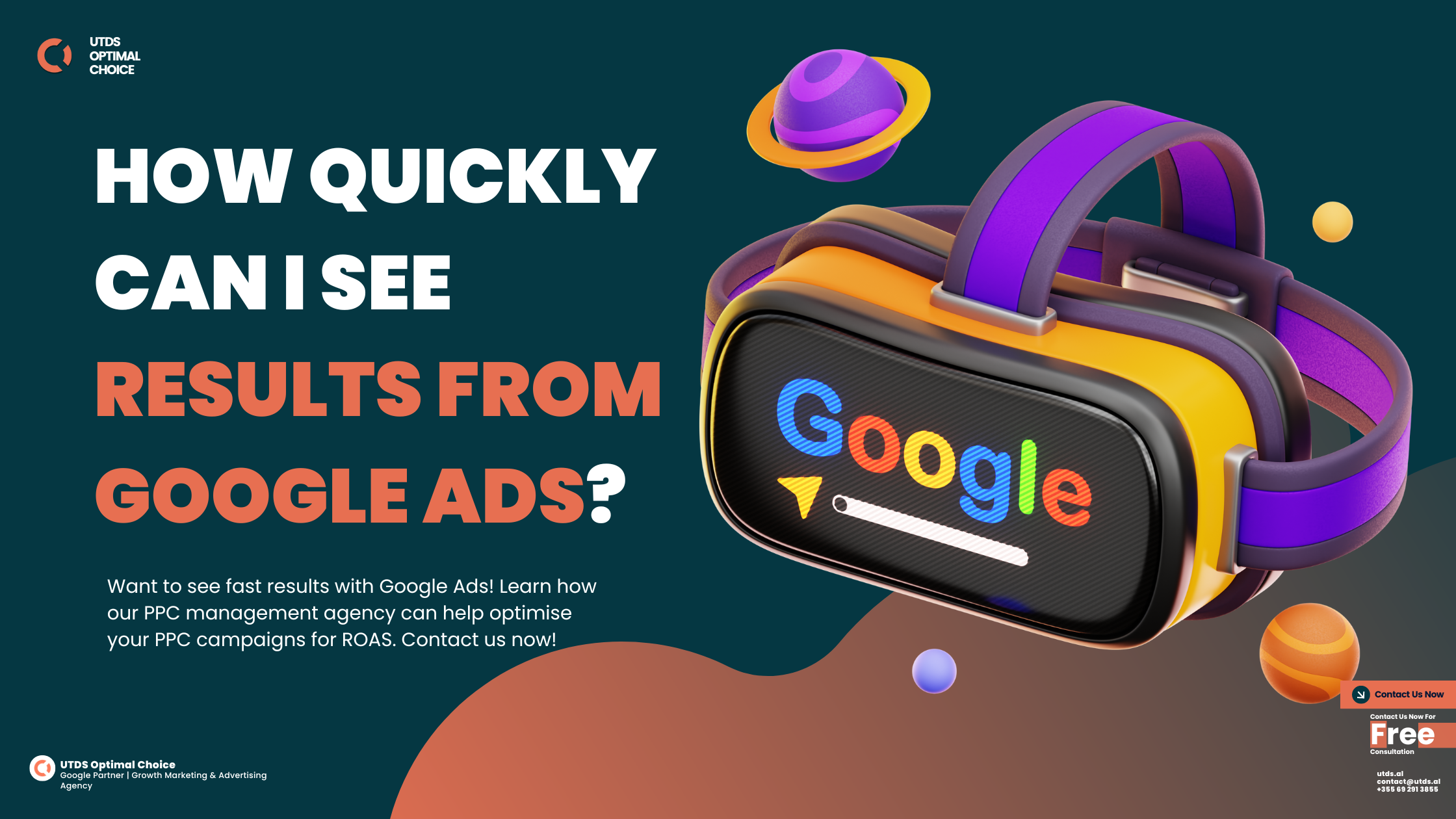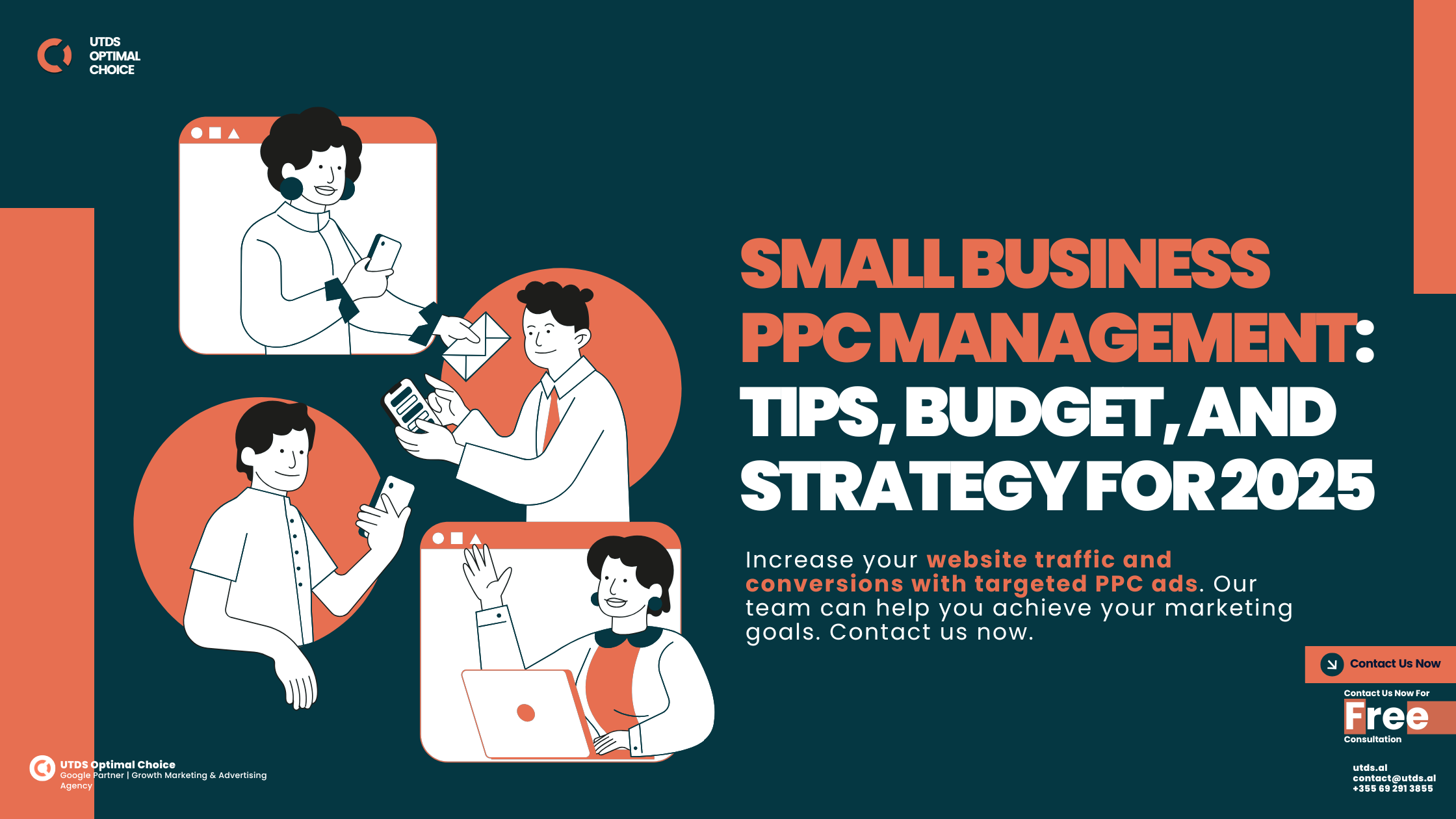Are you ready to take your brilliant idea and turn it into a thriving business? You’ve come to the right place. Whether you’re working late nights in your garage or you’ve just secured your first round of funding, we’ve got you covered with everything you need to know about startup marketing.
In this guide, we will guide you about:
- How to create a startup marketing strategy that sets you apart from the competition
- Practical, budget-friendly tactics to get your startup noticed
- Insider tips on digital marketing, from SEO to social media
- Tailored advice for B2B, B2C, and D2C businesses
- Cutting-edge trends and how to implement them in your startup
By the end of this guide, you’ll have a toolbox full of strategies to attract customers, grow your brand, and scale your startup. So, grab a cup of coffee (or tea, if you prefer), and let’s dive in!
Ready to Build a Successful Marketing Strategy? At UTDS Optimal Choice, we help startups create tailored marketing strategies that drive growth and achieve their business goals. Get in touch with us to start building your winning strategy today!
Startup Marketing
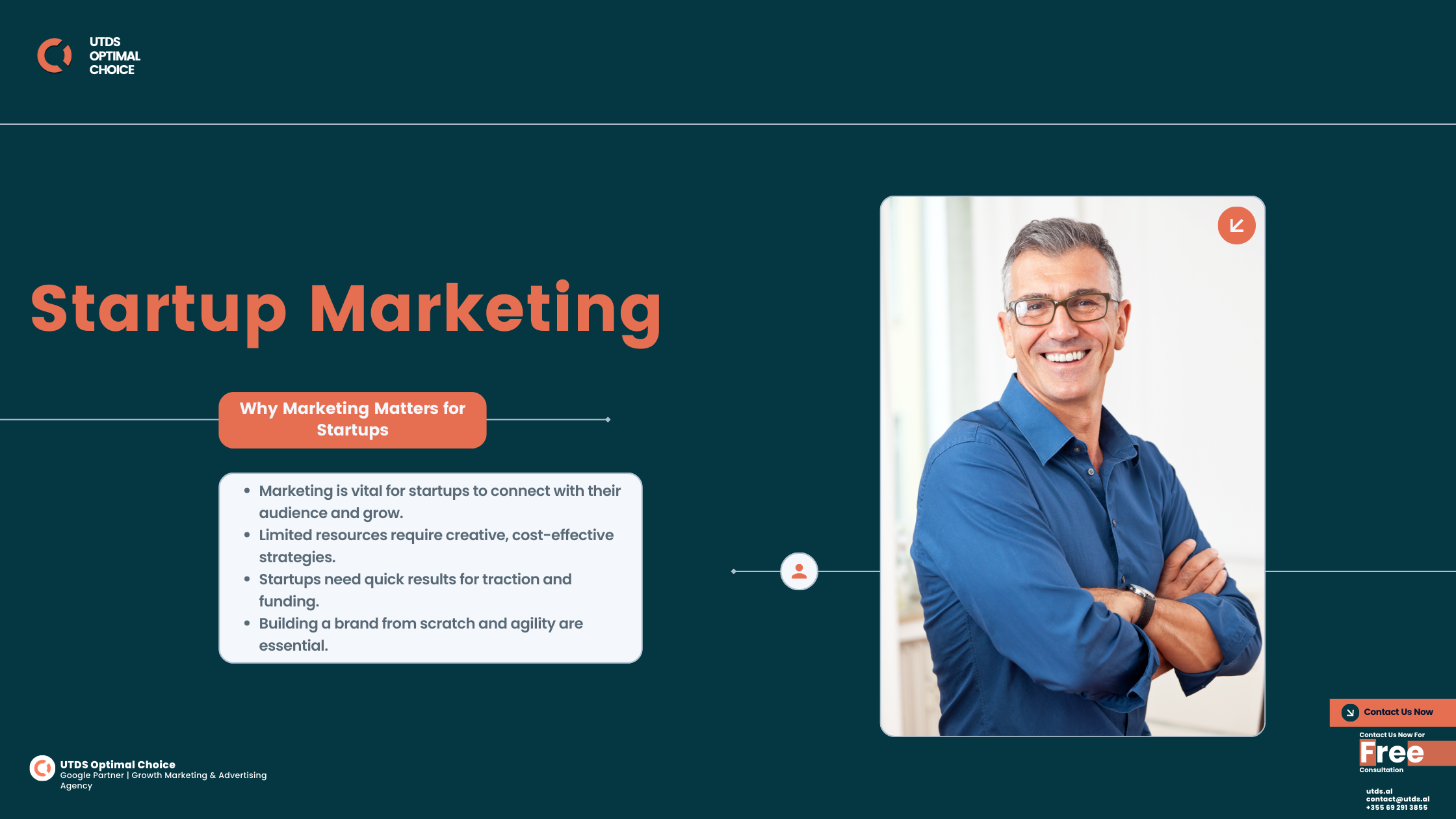
Why Marketing Matters for Startups
Marketing isn’t just for big companies with deep pockets. For startups, it’s the lifeline that connects your innovative ideas with your target audience. It’s how you get noticed, attract customers, and ultimately, grow your business. But startup marketing is a different beast compared to traditional marketing. Here’s why:
- Limited Resources: As a startup, you likely don’t have a massive marketing budget. You need to be creative and make every pound count.
- Need for Quick Results: Unlike established businesses, startups often need to show traction quickly to secure funding or stay afloat.
- Building Brand from Scratch: You’re not just selling a product; you’re introducing a whole new brand to the world.
- Agility is Key: The ability to pivot quickly based on market feedback is crucial for startups.
Startup Marketing vs Traditional Marketing
While the core principles remain the same, startup marketing differs from traditional marketing in several ways:
- Focus on Growth: Startup marketing often emphasises rapid growth and user acquisition over brand building.
- Digital-First Approach: Most startup marketing strategies prioritise digital channels due to their cost-effectiveness and measurability.
- Content-Driven: Startups often rely heavily on content marketing to establish authority and drive organic growth.
- Data-Driven Decision Making: With limited resources, startups need to closely monitor and optimise their marketing efforts based on data.
- Emphasis on Product-Market Fit: A significant part of startup marketing involves validating and refining the product-market fit.
How To Create Winning Startup Marketing Strategy
A solid marketing strategy is the foundation of your startup’s success. Here’s how to create one:
Know Your Audience
Understanding your target audience is crucial. It’s not enough to have a general idea; you need to dig deep:
- Create Buyer Personas: Develop detailed profiles of your ideal customers. Include demographics, psychographics, pain points, and goals.
- Conduct Market Research: Use surveys, interviews, and social media listening to gather insights about your target audience.
- Analyse Competitors: Study your competitors audience to identify gaps in the market you can fill.
Set Clear, SMART Goals
Your marketing goals should be Specific, Measurable, Achievable, Relevant, and Time-bound (SMART).
For example:
- Increase website traffic by 50% in the next 6 months
- Acquire 1000 new email subscribers in Q3
- Achieve a customer acquisition cost (CAC) of £50 or less by the end of the year
Choose Your Marketing Channels
Based on your audience research, determine which channels will be most effective:
- Social Media: Which platforms do your target customers use most?
- Content Marketing: Will blog posts, videos, or podcasts resonate with your audience?
- Email Marketing: Is your audience responsive to email communications?
- Paid Advertising: Would Google Ads or social media ads be effective for your startup?
Develop Your Messaging
Craft a clear, compelling message that communicates your unique value proposition:
- What problem does your product or service solve?
- How are you different from competitors?
- What’s your brand voice? (Professional, friendly, humorous, etc.)
Create a Marketing Plan
Map out your marketing activities:
- Content Calendar: Plan your content creation and distribution schedule
- Campaign Timelines: Outline key marketing campaigns and their durations
- Budget Allocation: Decide how to distribute your marketing budget across different channels
- Team Responsibilities: Assign roles and responsibilities to team members
Digital Marketing For Startups
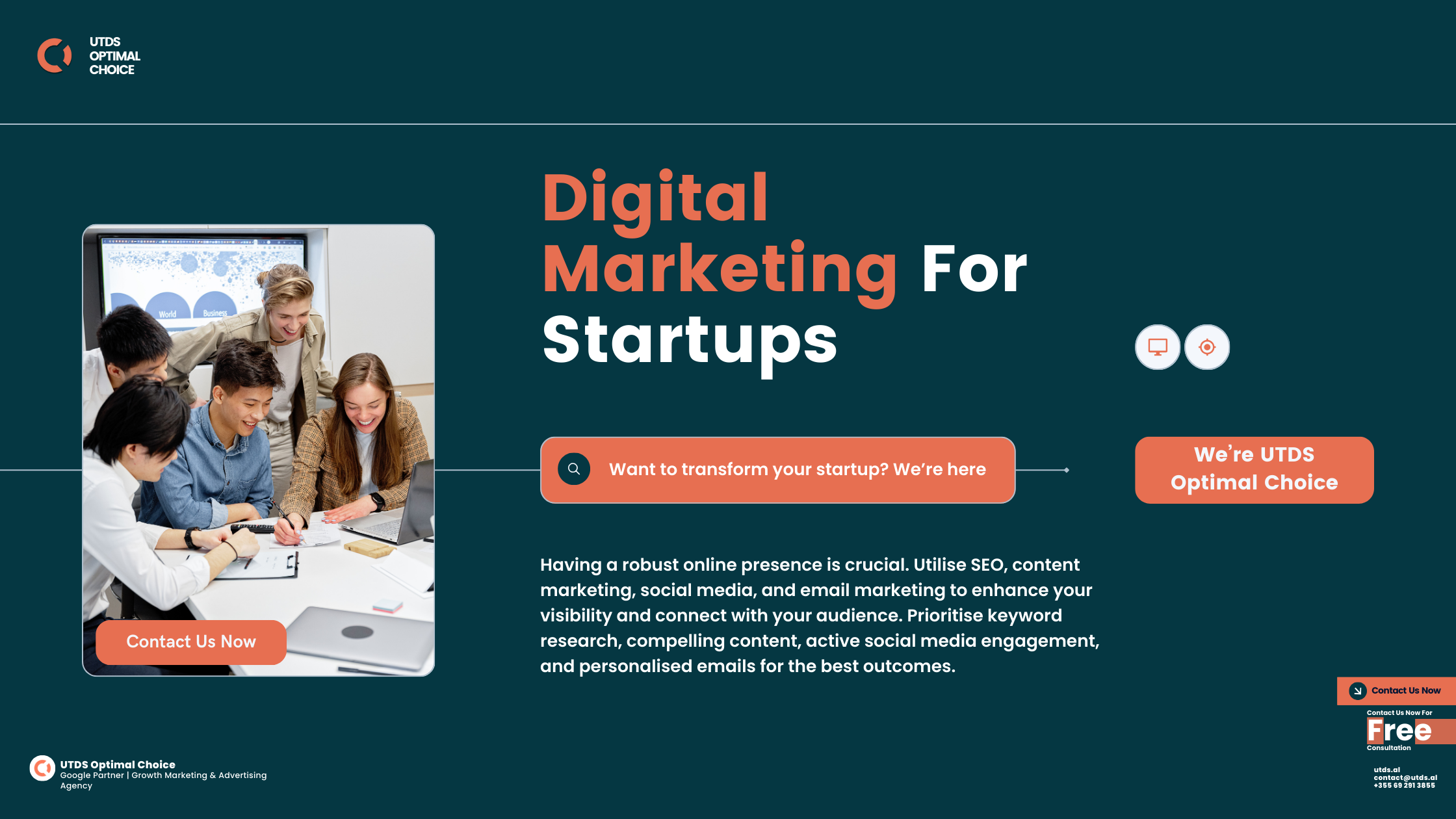
Today, a strong online presence is non-negotiable. Here’s how to make the most of digital marketing:
Search Engine Optimisation (SEO)
SEO is about making your website easily discoverable on search engines like Google:
- Keyword Research: Use tools like Ahrefs or SEMrush to identify relevant keywords for your business
- On Page SEO: Optimise your website’s content, meta tags, and structure
- Technical SEO: Ensure your website is fast, mobile-friendly, and easy for search engines to crawl
- Link Building: Develop a strategy to earn high quality backlinks to your site
Content Marketing
Content marketing helps establish your authority and drives organic traffic:
- Blog Posts: Create informative, engaging articles that address your audience’s pain points
- Whitepapers and E-books: Develop in-depth resources to generate leads
- Videos: Create explainer videos, product demos, or thought leadership content
- Podcasts: Start a podcast to share industry insights and build a loyal audience
Social Media Marketing
Social media is a powerful tool for building brand awareness and engaging with customers:
- Choose the Right Platforms: Focus on platforms where your audience is most active
- Develop a Content Strategy: Plan a mix of promotional, educational, and engaging content
- Engage Actively: Respond to comments, participate in discussions, and build a community
- Leverage User-Generated Content: Encourage customers to share their experiences with your product
Email Marketing
Email marketing remains one of the most effective marketing channels:
- Build Your List: Offer valuable lead magnets to encourage sign-ups
- Segment Your Audience: Tailor your messages based on subscriber behaviour and preferences
- Automate Wisely: Set up welcome sequences, abandoned cart emails, and other automated campaigns
- Personalise: Use subscriber data to create personalised, relevant emails
Advertising On A Budget
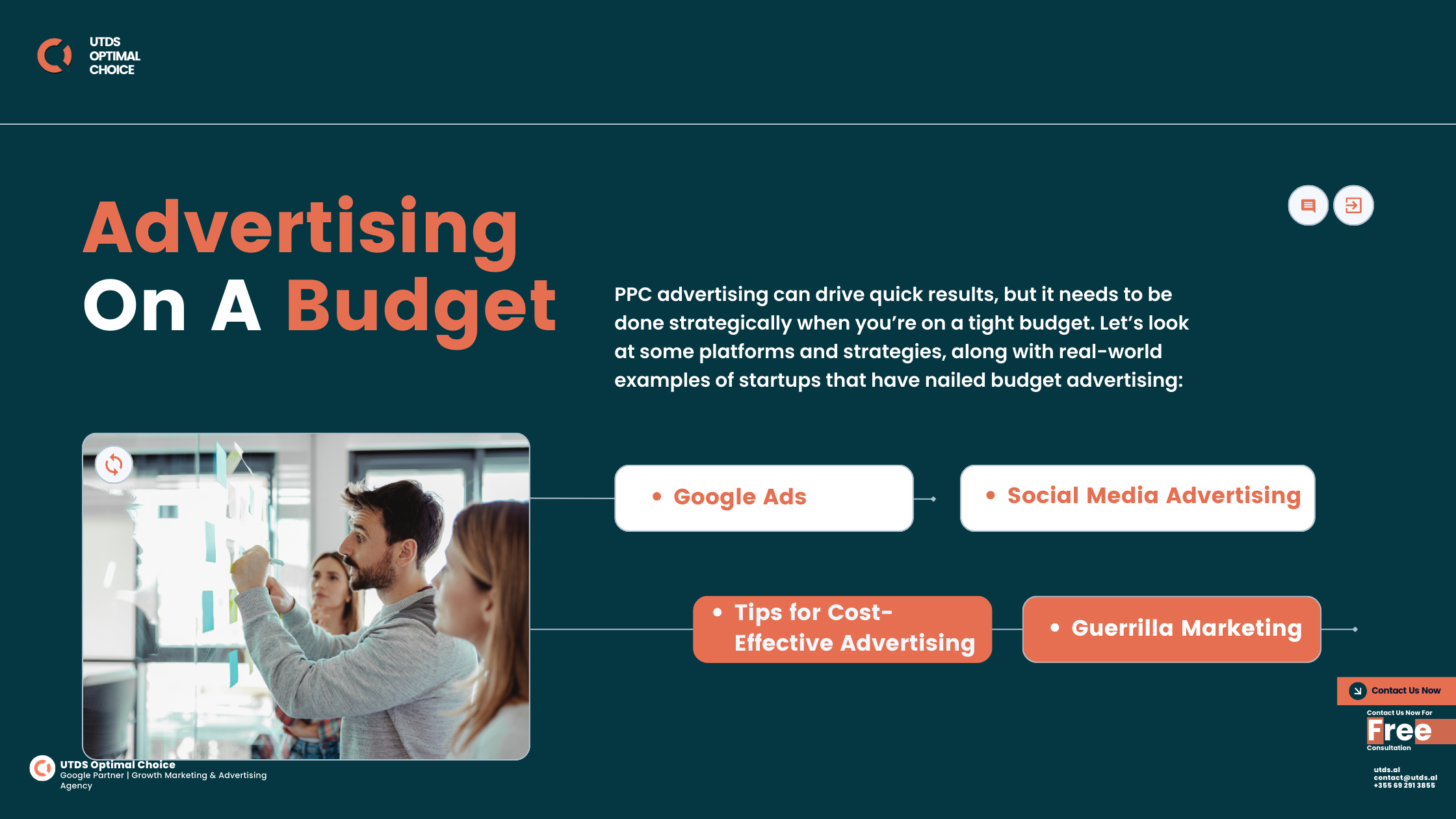
PPC advertising can drive quick results, but it needs to be done strategically when you’re on a tight budget. Let’s look at some platforms and strategies, along with real-world examples of startups that have nailed budget advertising:
Google Ads
- Start with search ads targeting high transactional search intent keywords.
- Use ad extensions to improve your ad’s visibility and click-through rate
- Set up conversion tracking to measure your ROI
Example: Beardbrand, a men’s grooming company, started with a modest budget in Google Ads. They focused on long-tail keywords like “how to grow a beard” and created informative content to match these search queries. This strategy helped them build brand awareness and drive targeted traffic, eventually growing into a million-dollar business. As per their recent case study, brand generates £100k/mo just through content marketing strategy.
Social Media Advertising
- Use detailed targeting options to reach your ideal audience
- Start with a small budget and A/B test your ad creatives
- Retarget website visitors to improve conversion rates
Example: Dollar Shave Club famously launched with a hilarious YouTube video that cost only $4,500 to produce. They then used Facebook ads to promote the video, targeting men aged 18-35. The video went viral, gaining 12,000 subscribers in the first 48 hours, all from a relatively small ad spend. Check their case study here.
Tips for Cost-Effective Advertising
- Focus on bottom-of-the-funnel keywords and audiences initially
- Use ad scheduling to show your ads when your audience is most likely to convert
- Regularly review and optimise your campaigns to improve performance
Example: Dropbox grew its user base significantly through a clever referral program advertised through Google Ads. They offered extra free storage for both the referrer and the new sign-up, effectively reducing their customer acquisition cost while rapidly expanding their user base. Check their case study here.
Guerrilla Marketing
Don’t underestimate the power of creative, low-cost guerrilla marketing tactics:
Example: When Airbnb was starting out, they piggybacked on Craigslist’s established user base. They created a feature that allowed Airbnb hosts to cross-post their listings on Craigslist automatically, tapping into a massive audience without spending a penny on advertising. Check their case study here.
Remember, the key to successful budget pay per click advertising is creativity, precise targeting, and continuous optimisation based on data. Start small, test different approaches, and scale what works best for your startup
B2B Marketing Strategies
If you’re selling to other businesses, consider these strategies:
LinkedIn Marketing
- Optimise your company page and employee profiles
- Share thought leadership content regularly
- Use LinkedIn targeting options for highly relevant ads
Account-Based Marketing (ABM)
- Identify high-value target accounts
- Create personalised PPC campaigns for each account
- Align your sales and marketing efforts for a cohesive approach
Content Marketing for B2B
- Create in depth case studies showcasing client success stories
- Develop industry reports and original research
- Host webinars and virtual events to showcase your expertise
B2C Marketing Strategies
For businesses targeting consumers directly:
Influencer Marketing
- Partner with micro-influencers in your niche for authentic promotion
- Create affiliate programs to incentivise ongoing promotion
- Collaborate on content creation for maximum engagement
User-Generated Content (UGC)
- Encourage customers to share photos or videos using your product
- Run contests or challenges to boost UGC creation
- Showcase UGC on your website and social media channels
Customer Loyalty Programs
- Develop a points-based or tiered loyalty program
- Offer exclusive perks and early access to loyal customers
- Use gamification elements to make the program engaging
D2C Marketing Approaches
For direct-to-consumer businesses:
E-commerce Optimisation
- Implement a mobile first, responsive website design
- Use high-quality product images and detailed descriptions
- Optimise your checkout process to reduce cart abandonment
Personalisation
- Use customer data to offer personalised product recommendations
- Implement dynamic email content based on user behaviour
- Create personalised landing pages for different customer segments
Omnichannel Marketing
- Ensure a consistent brand experience across all touchpoints
- Use retargeting to reach customers across different platforms
- Implement click-and-collect or other omnichannel shopping options
Measuring Your Success
To ensure your marketing efforts are paying off, you need to track the right metrics:
Key Performance Indicators (KPIs)
- Website traffic and sources
- Conversion rates
- Customer Acquisition Cost (CAC)
- Customer Lifetime Value (CLV)
- Return on Ad Spend (ROAS)
- Engagement rates on social media
- Email open and click-through rates
Analytics Tools
- Google Analytics for website performance
- Social media native analytics tools
- Email marketing platform analytics
- CRM system for sales and customer data
A/B Testing
Regularly test different elements of your marketing:
- Email subject lines and content
- Ad creatives and copy
- Landing page designs
- Calls-to-action (CTAs)
Emerging Trends in Startup Marketing
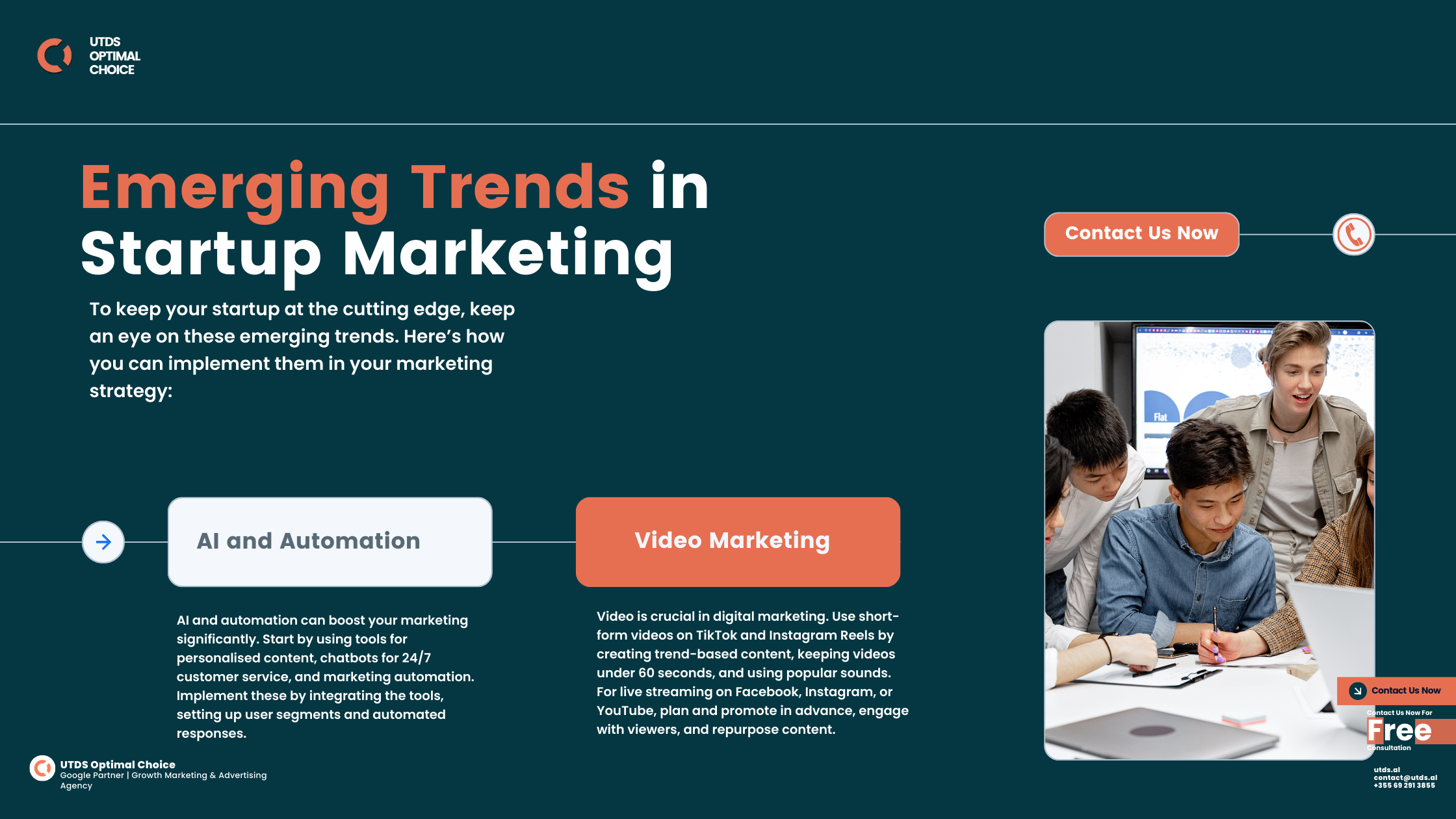
To keep your startup at the cutting edge, keep an eye on these emerging trends. Here’s how you can implement them in your marketing strategy:
AI and Automation
AI and automation can significantly enhance your marketing efforts. Here’s how to get started:
Personalised Content Recommendations:
- Tool Suggestion: Try Optimizely or Dynamic Yield for website personalisation.
- Implementation Steps: a) Integrate the tool with your website b) Set up user segments based on behaviour or demographics c) Create different content versions for each user intent d) Use the tool’s AI to automatically show the most relevant content to each user
Chatbots for 24/7 Customer Service:
- Tool Suggestion: MobileMonkey or ManyChat for Facebook Messenger bots
- Implementation Steps: a) Design your chatbot conversation flow b) Set up automated responses for common queries c) Integrate with your CRM for personalised interactions d) Continually refine based on user interactions
Marketing Automation:
- Tool Suggestion: HubSpot or ActiveCampaign
- Implementation Steps: a) Map out your customer journey b) Create automated email sequences for each stage c) Set up triggers based on user behaviour d) Regularly review and optimise your automation workflows
Voice Search Optimisation
As voice search becomes more prevalent, optimising for it is crucial:
Optimise for Conversational Keywords:
- Tool Suggestion: AnswerThePublic or BuzzSumo’s Question Analyser
- Implementation Steps: a) Research common questions in your niche b) Create content that directly answers these questions c) Use natural, conversational language in your content
Create FAQ Pages:
- Implementation Steps: a) Compile a list of common customer questions b) Provide clear, concise answers c) Structure your FAQ page with proper HTML (use <h2> for questions and <p> for answers) d) Implement FAQ Schema markup for better search visibility
Optimise Google My Business Listing:
- Implementation Steps: a) Claim and verify your Google My Business listing b) Keep your information up-to-date (address, phone number, hours) c) Regularly post updates and offers d) Encourage and respond to customer reviews
Video Marketing
Video is becoming increasingly important in digital marketing:
Short-form Video Content:
- Platforms: TikTok, Instagram Reels
- Implementation Steps: a) Brainstorm creative, trend-based ideas relevant to your brand b) Keep videos under 60 seconds, with a strong hook in the first 3 seconds c) Use popular music or sounds to increase discoverability d) Post consistently and engage with your audience
Live Streaming:
- Platforms: Facebook Live, Instagram Live, YouTube Live
- Implementation Steps: a) Plan your live stream content in advance b) Promote your upcoming live stream across all channels c) Engage with viewers in real-time by answering questions d) Repurpose live stream content for other platforms
Shoppable Video Content:
- Platforms: Instagram Shopping, TikTok Shopping
- Implementation Steps: a) Set up your shop on the platform b) Create engaging video content featuring your products c) Tag products in your videos d) Use calls-to-action encouraging viewers to shop
Need help creating a tailored marketing strategy for your startup?
At UTDS Optimal Choice, we understand that navigating the complex world of startup marketing can be overwhelming. That’s why we’re here to be your trusted partner in growth. As a specialised PPC, Website Development, and SEO Agency, we offer tailored solutions to skyrocket your startup’s online presence.
Our services include:
- Strategic PPC campaigns to drive targeted traffic
- Custom website development that converts visitors into customers
- SEO optimisation to boost your organic visibility
Whether you’re looking to launch your first marketing campaign, redesign your website for better performance, or climb the search engine rankings, our team of experts is ready to help. We combine data-driven strategies with creative solutions to deliver results that matter to your bottom line.
Ready to take your startup to the next level? Contact us now! Let’s chat about how we can fuel your growth journey.

